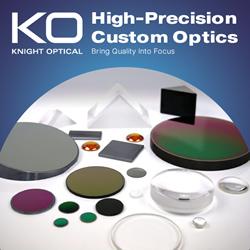NJIT Granted FAA Permission to Test Unmanned Aircraft Systems
On May 8 the FAA awarded NJIT a COA, making it the first New Jersey university and first public institution in state granted permission to test the UAS.
Newark, NJ May 12, 2014
More than two years ago, NJIT Professor Michael Chumer was testing Unmanned Aircraft Systems (UAS) that were deployed in California yet able to send video into his emergency management network at NJIT.
The video clearly showed that the UAS could be used to enhance both emergency response and public safety in the State of New Jersey. The question then arose: How does NJIT bring this untapped potential to New Jersey?
The answer, surmised Chumer, was to apply for permission to use the UAS in New Jersey from the Federal Aviation Administration, which has a Certificate of Waiver/Authorization (COA) process. He started the process nine months ago and on May 8 the FAA awarded the university a COA, making it the first New Jersey university and first public institution in state granted permission to test the UAS. NJIT will use the airstrip on the U.S. Coast Guard Training Center in Cape May to test the systems.
"This (COA) process was a learning experience for me and NJIT," said Chumer, director of the Crisis Communication Center and of UAS Applied Research at NJIT. "As we proceeded through the application, we learned a lot about what data is required to safely integrate UAS technology within the National Airspace."
NJIT will work closely with the State of New Jersey Office of Homeland Security and Preparedness as well as the State Office of Emergency Management to develop UAS capabilities. It will also aim to weave that capability into the state's emergency response operations.
NJIT is a partner in the Mid-Atlantic Aviation Partnership (MAAP), housed at the Virginia Polytechnic Institute and State University, which last year was designated one of six test sites authorized to develop procedures to ensure the safe integration of the UAS into the National Airspace.
The university plans to begin testing under its COA in the summer of 2014 and be prepared to assist New Jersey in bringing UAS emergency management capabilities to bear during the hurricane season. In addition, as part of the Test Site MAAP team, NJIT plans to collect operational data required by the FAA on the specific UAS that will be flown in Cape May.
"The testing, evaluation, and applied research that NJIT plans to accomplish will be integrated into nation's overall Test Site Research plan," said Chumer. "The UAS has the potential to strengthen our nation in myriad ways and we at NJIT will call upon our considerable technical skills to hasten this process along."
About NJIT
NJIT, New Jersey's science and technology university, enrolls 10,000 students pursuing bachelor's, master's and doctoral degrees in 120 programs. The university consists of six colleges: Newark College of Engineering, College of Architecture and Design, College of Science and Liberal Arts, School of Management, College of Computing Sciences and Albert Dorman Honors College. U.S. News & World Report's 2011 Annual Guide to America's Best Colleges ranked NJIT in the top tier of national research universities. NJIT is internationally recognized for being at the edge in knowledge in architecture, applied mathematics, wireless communications and networking, solar physics, advanced engineered particulate materials, nanotechnology, neural engineering and e-learning. Many courses and certificate programs, as well as graduate degrees, are available online through the Division of Continuing Professional Education.
Featured Product

Knight Optical - Unlocking Precision for the Robotics and Automation Revolution
In the era of Industry 4.0, automation and machine learning drive the future. Knight Optical stands at the forefront, collaborating globally to supply precision optical components that power the robotics and automation sector. From UAVs, drones, and robotics to machine vision, LiDAR-driven car sensors, and renewable energy, our optics empower innovation. Optical components play an important role within the industry, including: Optical windows and domes safeguard systems in unmanned vehicles while preserving the field of view for cameras. Infrared lenses with aspheric surfaces elevate thermal imaging. Optical filters excel in machine vision, with colour glass, interference, and dichroic filters in our stock. Knight Optical provides stock components and custom solutions made to your exact specs. With every component undergoing rigorous metrology and QA checks before shipment, you are sure to experience true precision, innovation, and assurance.
